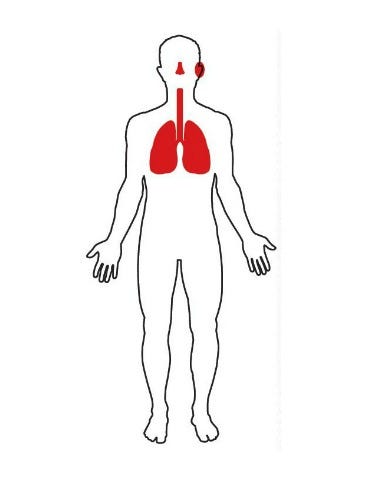What to Do if Antibiotics Don T Work for Tonsillitis

istockphoto
1. Earache
What to do: Treat pain with an over-the-counter analgesic like acetaminophen (Tylenol), ibuprofen (Advil, Motrin) or naproxen (Aleve, Naprosyn).
When to see a doctor: If you or your child has a fever above 100.4°; if there's any discharge from the ears; or if symptoms don't improve after two to three days. Check in with your M.D. sooner if the discomfort is severe.
2. Sore Throat
What to do: Soothe the irritation with ice chips, lozenges or moisture from a humidifier or vaporizer; you can also take an OTC pain reliever.
When to see a doctor: If symptoms don't improve after five days, or get worse after two to three. A fever over 100.4°, pus at the back of the throat, difficulty swallowing or recent contact with someone who has strep throat warrants a visit. Your doctor may take a swab from your throat, but advise you to hold off on antibiotics till results are in; if a culture is positive for strep, you'll need that antibiotic — but not necessarily a broad-spectrum one.
3. Sinusitis
What to do: Relieve pressure with a warm compress over your nose and forehead. OTC analgesics can help relieve pain. Use a decongestant, a saline nasal spray or steam from a hot shower or a clean humidifier to open up nasal passages.
When to see a doctor:If symptoms last seven days.
4. Bronchitis
What to do: Soothe your cough by taking OTC cough medicine, running a humidifier or breathing steam from a bowl of hot water or a hot shower. Call your M.D. to ask if you should come in.
When to see a doctor: Definitely get checked if your fever is above 100.4° or you're short of breath.
5. Pneumonia
What to do: If you suspect you may have pneumonia — you have breathing difficulties or chest pain, or you can't seem to shake a bad cough — you need to see your doctor right away. She will perform tests to confirm the diagnosis and determine if your infection is viral or bacterial.
Treatment: Bacterial pneumonia calls for antibiotics. If your infection is viral, your doctor may suggest cough medicine for comfort. But don't try to eliminate a cough altogether — it helps move fluid from your lungs. Drinking water and using a humidifier are also important.
Tip: If you need an antibiotic, take a probiotic, too.
In a 2012 review, researchers from the RAND Corporation found that probiotics — friendly bacteria that aim to protect against harmful bugs — can prevent diarrhea triggered by antibiotics. Many experts recommend a supplement or milk products containing Lactobacillus (acidophilus or LGG) and Bifidobacterium when you're taking antibiotics.
More about antibiotics and your health:
Richard Laliberte Richard Laliberte is an award-winning veteran health journalist and former senior writer at Men's Health who writes for some of the nation's best-known magazines, blogs for WeightWatchers.com, and has authored several books.
This content is created and maintained by a third party, and imported onto this page to help users provide their email addresses. You may be able to find more information about this and similar content at piano.io
What to Do if Antibiotics Don T Work for Tonsillitis
Source: https://www.goodhousekeeping.com/health/advice/a19013/avoid-antibiotics/